In This Article
Pigmentation Treatment Aftercare: Tips for Lasting Results & Faster Recovery
If you just had your skin pigmentation treatment done and think that your job is over, you are absolutely wrong. While pigmentation treatment effectively helps reduce skin discolouration and patchy skin, it is important to maintain the results. That said, your journey is still ongoing post-treatment and after you exit the clinic. Post-treatment is as important as your treatment journey, because it helps you achieve and maintain your desired results. Here we are with this article to guide you through the importance of post-treatment care. We will learn how to care for your skin after the pigmentation treatment. In addition, we will provide you with some post-care tips to help you have a smooth recovery and achieve optimal results.
In This Article

Why Post-Treatment Care Matters?
Post-care is essential for any treatment, and not just pigmentation. It ensures you achieve and maintain the fabulous results you have been waiting for. Pigmentation can recur if you do not protect your skin from the sun’s harmful UV rays. Following your dermatologist’s instructions and recommendations after treatment is important. This is what happens when you follow the post-treatment care maintenance:
- Helps heal your skin
- Manages any side effects
- Prevents recurrence
- Maximises the effectiveness of the treatment
- Gives you clear and more even-toned skin
Immediate Steps After Pigmentation Treatment
Now that you have understood that post-treatment care is a necessity, let us look at some steps that will help you optimise the overall outcome of the procedure:
- Cool Compress: After the pigmentation treatment session, applying a cool compress immediately is necessary. It will help alleviate any redness, swelling, or discomfort.
- Avoid Hot Showers: Refrain from taking hot showers or sauna baths after the session because they can increase blood flow to the treated area. It will likely worsen the redness and irritate your skin.
- Avoid Swimming: If you have the habit of swimming every day, refrain from doing it. The swimming pool usually contains chlorine, which can irritate your sensitive skin and cause infection.
- Avoid Workouts: Refrain from performing any strenuous exercises and workouts that can cause sweating and ultimately irritate the treated skin.
- Avoid Makeup: Do not wear makeup on your skin. Allow it to heal. Using cosmetic products may clog the pores and cause irritation.
- Avoid Sun Exposure: Your treated skin will be sensitive to the sun and vulnerable to UV damage. Protect your skin from sun exposure, as it will prevent the occurrence and recurrence of pigmentation.
- Moisturise: Always keep the treated area well-hydrated. The best way to do it is by moisturising with a gentle, non-comedogenic moisturiser.
- Avoid Irritants: Avoid using skincare products that contain harsh ingredients, chemicals, fragrances, and exfoliants.
- Avoid Scratching/Picking: It is natural to feel tempted to scratch the flaky and crusted skin. Do not scratch, pick or peel any crusts, as it can lead to scarring.
Daily Skincare Routine for Even Skin Tone
Following a skincare regimen is necessary if you want to achieve an even skin tone. Incorporate the below daily skincare routine for your pigmented skin:
- Gentle Cleansing: Cleanse your face daily in the morning and at night using a gentle cleanser to clear the skin of oil, dirt and other impurities. Do not use products that contain harsh ingredients.
- Exfoliation: Exfoliate your skin 2-3 times a week to remove dead skin cells and promote the growth of new cells.
- Avoid Harsh Scrubs: Stay away from abrasive scrubs, which can irritate your skin and exacerbate the condition. Instead, go for chemical exfoliants, like AHAs or BHAs.
- Apply Sunscreen: This is non-negotiable. Use a broad-spectrum sunscreen with an SPF of 30 or higher daily, whether you are indoors or outdoors. This helps prevent pigmentation and protects your skin from the sun’s harmful UV rays.
- Stay Hydrated: Hydrate your skin by using a good moisturiser that locks in the moisture and maintains a healthy skin barrier. Additionally, drink an adequate amount of water to maintain a healthy glow.
Lifestyle & Habits That Support Even Skin Tone
Several factors, like sun exposure, medications, ageing, and hormonal disorders, can cause uneven skin. While following a daily skincare routine can help even out your skin, that alone will not suffice. You need a balanced approach, which is a combination of a proper diet and lifestyle changes. Here’s a brief overview of the changes you would need:
- Manage Stress: Effective stress management is essential to maintaining healthy and glowing skin. Inculcate yoga, meditation or any physical activity in your daily routine that helps regulate stress.
- Adequate Sleep: During sleep time, your skin undergoes repair and regeneration. If you want to have healthy and glowing skin, aim for at least 7 to 8 hours of sleep. This will allow your skin to repair, heal and rejuvenate.
- Avoid Smoking & Drinking: Excessive smoking and alcohol consumption can harm your skin and contribute to an uneven tone. Consider limiting smoking and drinking for a healthy complexion.
- Avoid Home Remedies: While home remedies seem like an easy solution, they lack scientific evidence for safety and efficacy. So, avoid using them.
- Have A Healthy Diet: Make it a habit of consuming a balanced diet rich in essential nutrients and vitamins. Include fresh fruits and vegetables in your diet that support an even skin tone.
When to Consult Your Dermatologist?
You may have been following a consistent skincare routine with a focus on lifestyle changes. You might also have been using some home remedies and over-the-counter treatments. Despite all this, if you notice persistent discolouration or unevenness in skin tone and texture, it’s time to consult a dermatologist. Additionally, check for these signs and symptoms:
- If your discolouration is getting worse
- Changes in the size, shape, colour and texture of patches or moles on your skin
- If you have pain, swelling, itching or inflammation
Consult your dermatologist immediately, who will diagnose the cause, assess the severity, and guide you in suggesting an effective treatment plan.
Takeaway
Post-treatment care is crucial for achieving successful pigmentation treatment results. It plays a vital role in maintaining an even skin tone and sustaining the results for an extended period. At Oliva, we prioritise client care right from the beginning to the end of all sessions. We also extend our support to our clients post-treatment by providing personalised skincare routines, diet recommendations and maintenance sessions. If you want us to help you on your skin transformation journey, book your consultation with our expert dermatologist at Oliva Clinics today!
Read This Next
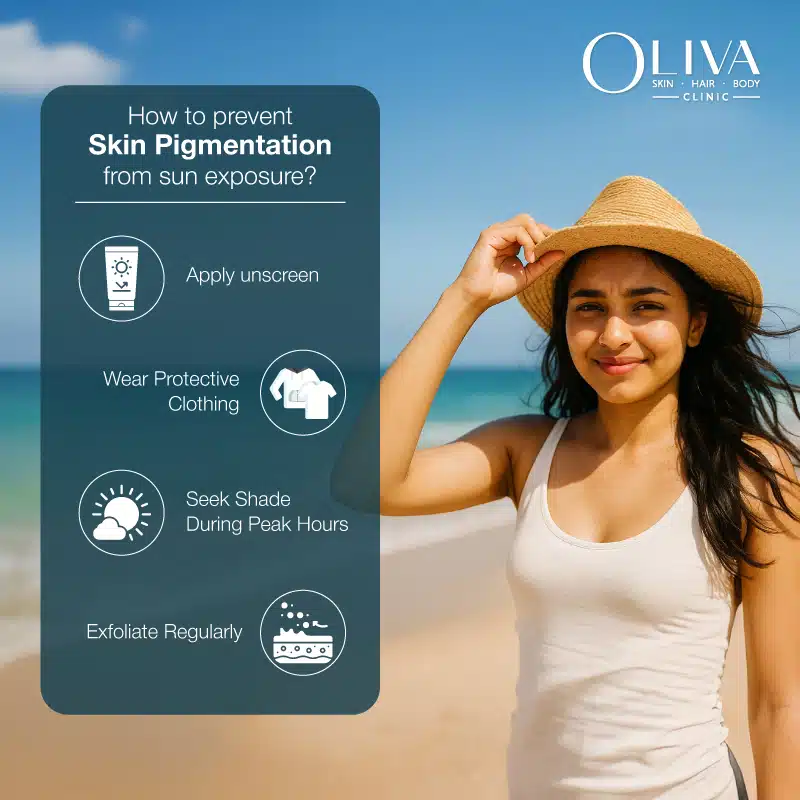
Skin Pigmentation Due to Sun Exposure: Causes, Treatments & Prevention
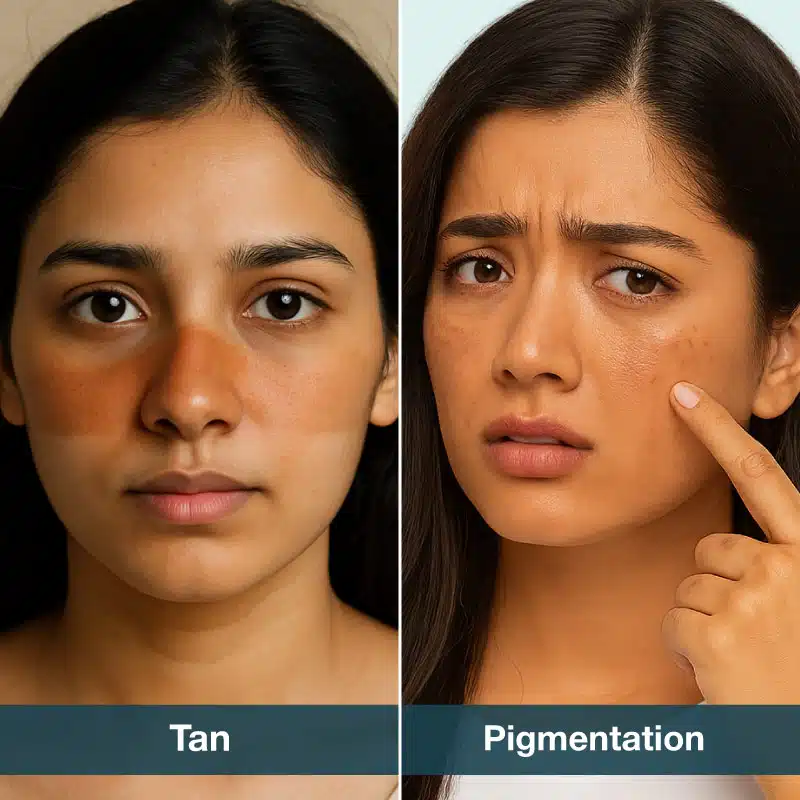
Difference Between Tan and Pigmentation: Causes, Signs & Treatments
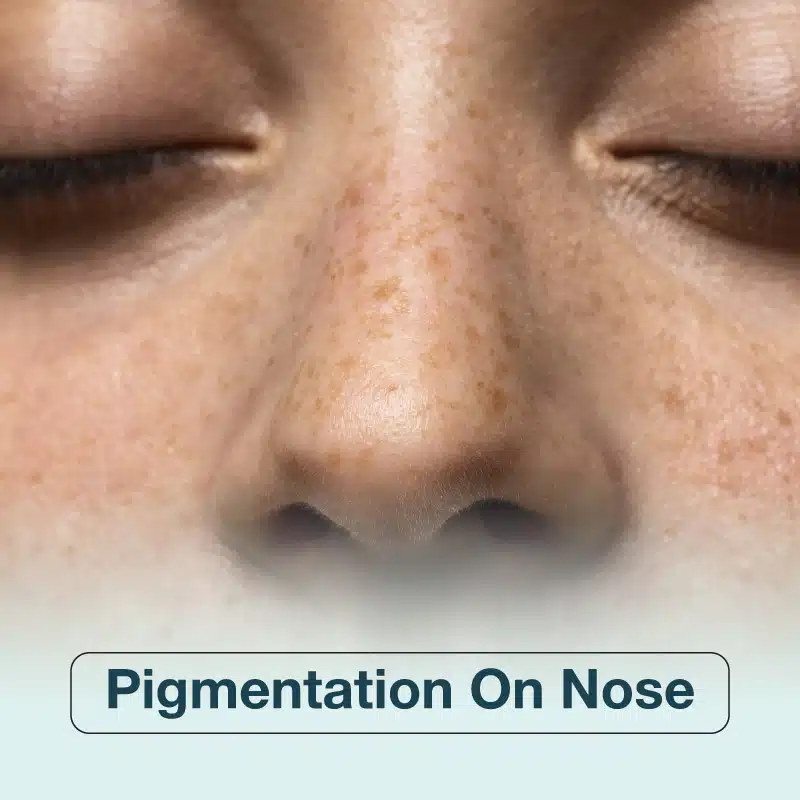
Pigmentation on Nose: Causes, Types & Best Treatments
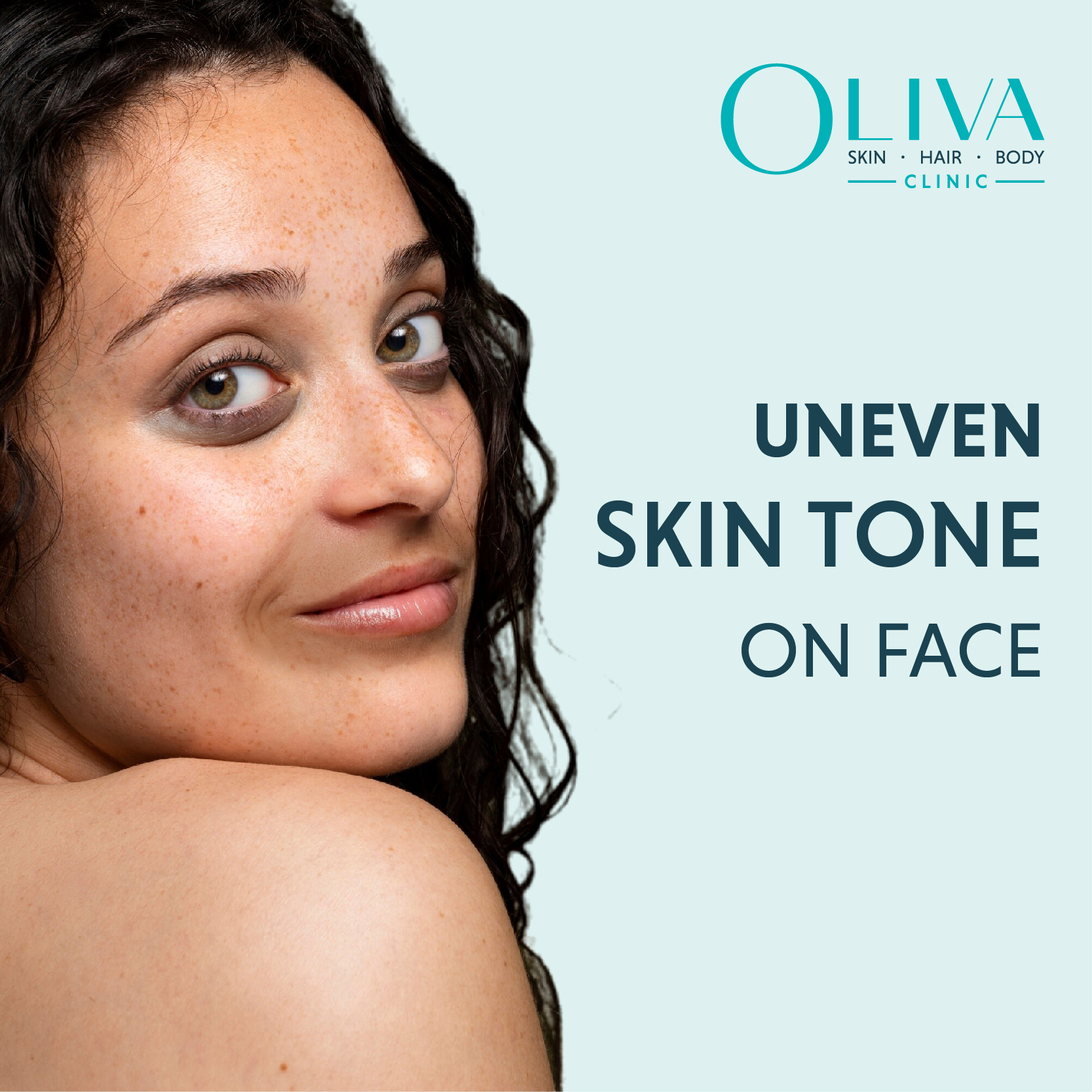
Uneven Skin Tone: Causes, Treatments, Home Remedies & Prevention
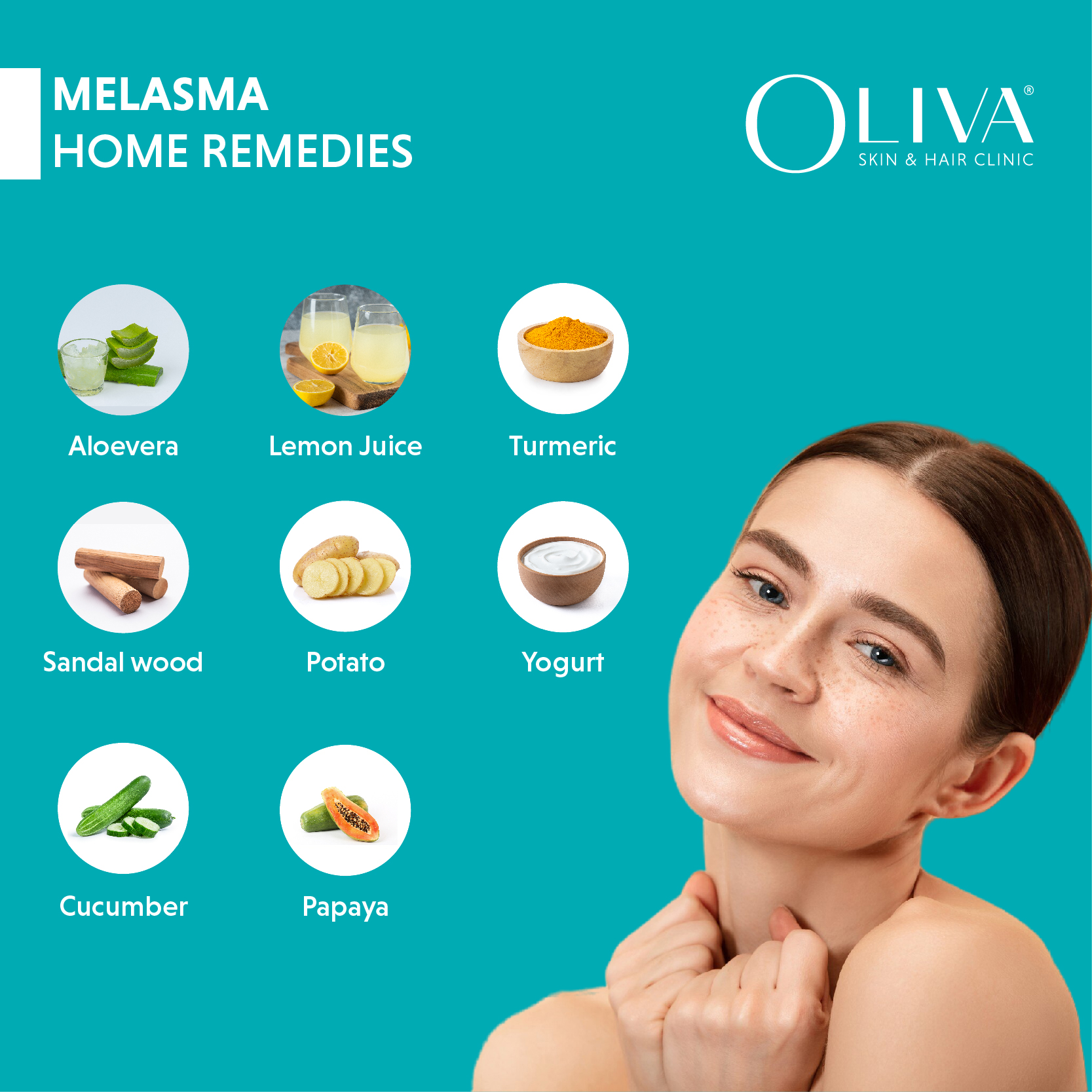
10 Proven Home Remedies for Melasma: Aloe Vera, Turmeric, Lemon Juice & More



